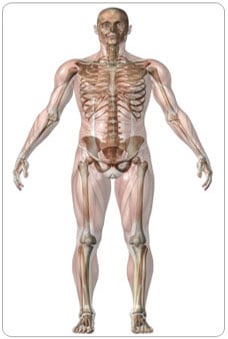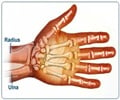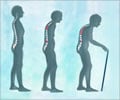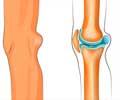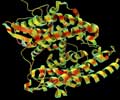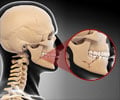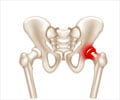What Are The Causes Of Osteoporosis?
The most common cause of osteoporosis in elderlywomen is estrogen deficiency.
Causes of osteoporosis include -
- Heredity - People with a family history of osteoporosis are at increased risk of developing the condition.
- Estrogen deficiency - Estrogen is necessary for maintaining bone density in women. Estrogen levels drop after menopause or with early surgical removal of both ovaries, and the bone loss speeds up. Amenorrhea (absence of the menstrual period) in young women also causes low estrogen levels and osteoporosis.
- Chronic diseases such as rheumatoid arthritis and chronic hepatitis C, an infection of the liver.
- Immobility, such as after a stroke or from any condition that interferes with walking.
- Hyperparathyroidism, a disease wherein there is excessive parathyroid hormone production by the parathyroid glands (small glands located near the thyroid gland). Normally, the parathyroid hormone maintains blood calcium levels by removing calcium from the bone. In untreated hyperparathyroidism, excessive parathyroid hormone causes too much calcium to be removed from the bone and this can lead to osteoporosis.
- Too much thyroid hormone can also cause bone loss. This condition can occur when your thyroid is overactive (hyperthyroidism) or when you take excessive thyroid hormone medication to treat an underactive thyroid (hypothyroidism).
- Vitamin D deficiency- Vitamin D helps the body absorb calcium. When vitamin D is lacking, the body cannot absorb adequate amounts of calcium to prevent osteoporosis.
- Certain medications can cause osteoporosis. These include heparin (a blood thinner), anti-seizure medications phenytoin (Dilantin) and phenobarbital, and long term use of corticosteroids (such as prednisone).
- Excessive consumption of alcohol reduces bone formation and interferes with the body's ability to absorb calcium. Chronic alcoholism is one of the highest risk factors for osteoporosis in men.
- Excessive smoking can lead to porous bones.
- Malabsorption (nutrients are not properly absorbed from the gastrointestinal system) from conditions such as Celiac disease and Sprue

